Related Research Articles
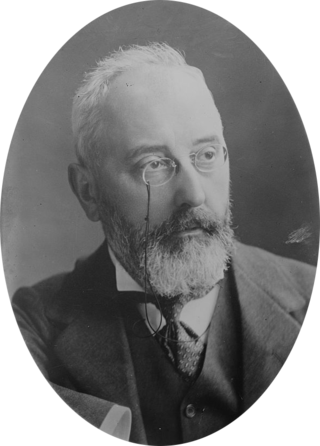
Timothy Michael Healy, KC was an Irish nationalist politician, journalist, author, barrister and a controversial Irish Member of Parliament (MP) in the House of Commons of the United Kingdom of Great Britain and Ireland. His political career began in the 1880s under Charles Stewart Parnell's leadership of the Irish Parliamentary Party (IPP) and continued into the 1920s, when he was the first governor-general of the Irish Free State.
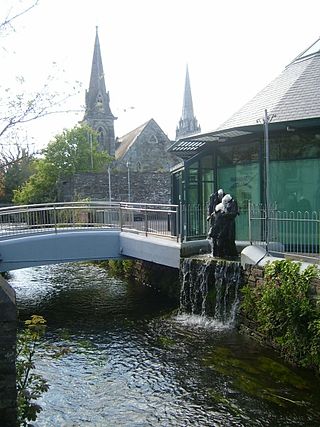
Clonakilty, sometimes shortened to Clon, is a town in County Cork, Ireland. The town is at the head of the tidal Clonakilty Bay. The rural hinterland is used mainly for dairy farming. The town's population as of 2016 was 4,592. The town is a tourism hub in West Cork, and was recognised as the "Best Town in Europe" in 2017, and "Best Place of the Year" in 2017 by the Royal Institute of the Architects of Ireland. Clonakilty is in the Dáil constituency of Cork South-West, which has three seats.
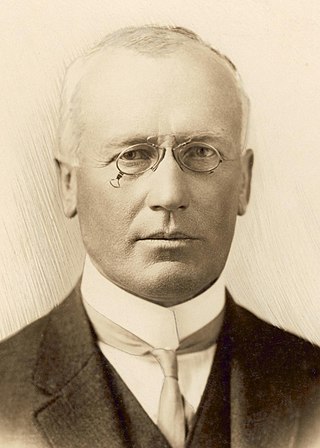
Sir William Hill Irvine was an Australian politician and judge. He served as Premier of Victoria (1902–1904), Attorney-General of Australia (1913–1914), and Chief Justice of Victoria (1918–1935).

Gerald Yael Goldberg was an Irish lawyer and politician who in 1977 became the first Jewish Lord Mayor of Cork. Goldberg was the son of Lithuanian Jewish refugees; his father was put ashore in Cork with other Jews and told that "Cork was the gateway to America."
Barry Yelverton, 1st Viscount Avonmore, PC (Ire) KC, was an Irish judge and politician, who gave his name to Yelverton's Act 1782, which effectively repealed Poynings' Law and thus restored the independence of the Parliament of Ireland. This achievement was destroyed by the Act of Union 1800, which Yelverton supported. By doing so, he gravely harmed his reputation for integrity, which had already been damaged by his leading role in the conviction and execution for treason of the United Irishman William Orr, which is now seen as a major miscarriage of justice.
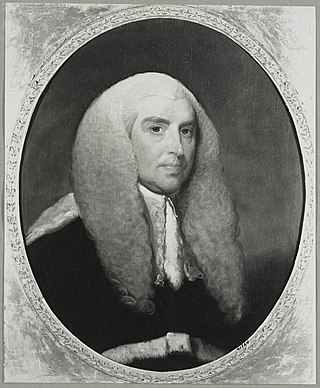
Hugh Carleton MRIA, 1st Viscount Carleton, PC (I), SL was an Irish politician and judge.

Maurice Healy was an Irish nationalist politician, lawyer and Member of Parliament (MP). As a member of the Irish Parliamentary Party, he was returned to the House of Commons of the United Kingdom of Great Britain and Ireland four times between 1885 and 1918.

Abraham Brewster PC (Ire) was an Irish judge and Lord Chancellor of Ireland.

Sir Richard Cox, 1st Baronet PC was an Irish lawyer and judge. He served as Chief Justice of the Common Pleas for Ireland from 1701 to 1703, Lord Chancellor of Ireland from 1703 to 1707 and as Lord Chief Justice of the Queen's Bench for Ireland from 1711 to 1714.

The Sheares Brothers, Henry (1753–98), and John (1766–1798) were Irish lawyers and republicans. After witnessing revolutionary events in Paris, in 1793 they joined the Society of United Irishmen for whom they organised in Cork and in Dublin. They were arrested on the eve of the risings of 1798 and executed.

Arthur Wolfe, 1st Viscount Kilwarden was an Anglo-Irish peer, politician and judge, who held office as Lord Chief Justice of Ireland. He was assassinated during the Irish rebellion of 1803.
John Francis Moriarty PC, QC was an Irish lawyer and judge.
Charles Kendal Bushe, was an Irish lawyer and judge. Known as "silver-tongued Bushe" because of his eloquence, he was Solicitor-General for Ireland from 1805 to 1822 and Lord Chief Justice of the King's Bench for Ireland from 1822 to 1841.
David Richard Pigot, PC, KC was one of the leading Irish judges of his time. His children included John Edward Pigot, a noted music collector and one of the founders of the National Gallery of Ireland. His grandchildren included the Australian astronomer and Jesuit Edward Pigot.

Peter O'Brien, 1st Baron O'Brien, PC, QC, known as Sir Peter O'Brien, Bt, between 1891 and 1900, was an Irish lawyer and judge. He served as Lord Chief Justice of Ireland between 1889 and 1913. In his lifetime he was universally known as Peter the Packer, due to the skill he displayed as Attorney-General in securing verdicts by packed juries.
Richard Pennefather (1773–1859) was an Irish lawyer and judge of the nineteenth century, who enjoyed a reputation for legal ability and integrity. He has been highly praised, in particular, for his scrupulously impartial conduct of the politically sensitive Doneraile Conspiracy Trials of 1829. He was the elder brother of Edward Pennefather, Lord Chief Justice of Ireland.
Sir John Meade, 1st Baronet (1642–1707) was an Irish barrister, judge and politician. He was the first of the Meade Baronets of Balintubber, and an ancestor of the Earls of Clanwilliam. He was unusual among the lawyers of his time for his lack of ambition to become a judge of the High Court, despite being generally regarded as a barrister of "excellent parts (qualities)". In matters of religion, he seems to have been, by the standards of his time, a man of very tolerant views: although he was himself a Protestant, he damaged his career by marrying Elizabeth Butler, who was a Roman Catholic, as his third wife.
Sir Robert Travers was an Irish judge, soldier and politician of the early seventeenth century. Despite his unenviable reputation for corruption, he had a highly successful career until the outbreak of the Wars of the Three Kingdoms, when he went into opposition to King Charles I. He fought on the side of the Irish Parliament, and was killed at the Battle of Knocknanuss. He was a nephew of the poet Edmund Spenser, and was the founder of a notable military dynasty.
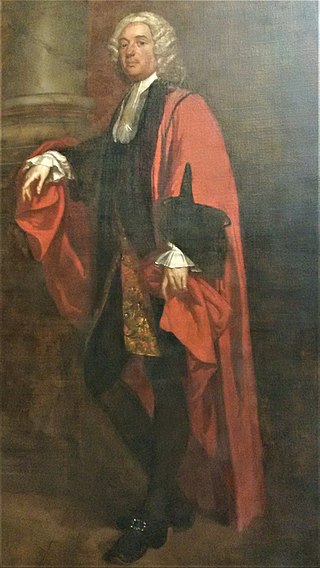
Eaton Stannard (1685–1755) was a leading politician and lawyer in eighteenth-century Ireland. He was a popular Recorder of Dublin, a very unpopular serjeant-at-law (Ireland), and an experienced parliamentarian who represented Midleton in the Irish House of Commons for many years. He is mainly remembered now as a close friend of Jonathan Swift, whose last known letter was written to him.

The Recorder of Kinsale was a judicial office-holder in pre-independence Ireland. He was the chief magistrate of the town of Kinsale. Given the population of the town, which was rarely more than 7000, the need for a full-time judge may be questioned. However Kinsale has been a chartered town since 1334, and the charter granted by Elizabeth 1 in 1589 explicitly provided for the office of Recorder, as did that granted to Clonakilty by James I in 1613. The first Recorder of Kinsale whose name is definitely known is Robert Slighe, who served in that office between approximately 1601 and 1615.
References
- ↑ Pike, W.T. editor Contemporary Biographies Richard Hodges Brighton. 1911
- ↑ Pike Contemporary Biographies
- ↑ {{Cite newspaper The Times |date=24 January 1900 |page=9 |issue=36047}}
- ↑ Ball, F. Elrington The Judges in Ireland 1221-1921 London, John Murray, 1926
- ↑ Healy, Maurice. The Old Munster Circuit Michael Joseph Ltd 1939
- ↑ Who's Who 1914